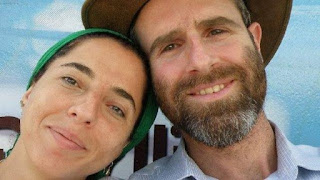First Foster Care Legislation in Israel

In Israel the Knesset just approved their first foster care law in memory of the tragic murder of Dafna Meir. The mother of six children was murdered at the footstep of her door at the Otniel settlement by a terrorist attacker. She had four biological children and two foster children with her husband Nathan Meir. Foster care used to be an issue addressed directly to the Welfare and Social Services Ministry. Foster parents will now have the right to have absolute control of their foster child/ren while under their custody. The issues that biological parents formally used to decide like haircuts, doctor visits, or field trips will now be in the hands of the foster parents.The establishment of a body that will issue licenses to foster parents will also address children complaints. Foster children are meant to live with their foster parents temporarily then placed back with their biological parents.Nathan was present for the passing of the bill with other supportive foster families to show appreciation. The new law is meant to make the process more pleasant for future foster parents to apply which foster children will benefit from. The legislation will create equality for all children in creating a healthy environment undergoing these circumstances.

The Times of Israel had misconstructed statements on Dafna’s attack and it provided an unclear description of the legislation being passed on foster care. In the Times of Israel writer Renee Ghert-zand addressed Dafna Meir’s attacker as a terrorist but on Ynetnews claim that her attacker was incited by Palestinian TV. The attacker is a Palestinian teenage boy that was roused up by the media’s portrayal of Israel as a nation that kills young Palestinians. The attack was not premeditated but impulsive. The reporter fails in explaining the influence of media contributing in spreading discriminatory messages to the audience and focused all the blame on the teenage boy. The author was very vague on the status of the biological parents during the process of this new legislation and how it will improve the status between the biological parent and child. Harretz claims that parental rehabilitation will cost approximately 200 million shekels a year which is why it was excluded in the new law. In The Times of Israel it did not comment on the economic benefits for the foster parents. The Jerusalem Post stated that the foster parents will be eligible for full maternity leave benefits in accordance to the age of the child.

The author is sympathetic to Dafna Meir’s attack and is supportive of the new mandate. Renee Ghert-zand gave an excerpt of an interview he did with Meir’s husband who supported for the bill to pass. The article focused a suitable amount of information on Dafna’s background and did not go into full details to explain the new proposal. The Times of Israel did not give statistics about the issue on most foster children currently living in institutions or group homes. The law is meant to facilitate foster parents’ process to remove children from living in institutions into homes. The issue had to be addressed because in Israel there have been many children living in group homes and there was no real institution to rely on but the Welfare Ministry that had homes for the displaced children. The Times of Israel was not able to provide that information I had to do further research in all the articles I utilized to construct this conclusion. Haarezt argues that the new law has many flaws regarding foster care being temporary and it does not benefit the biological parent. Renee Ghert-zand was giving the reader an article on the advancements of Israel in creating a law that will diminish the amount of foster children placed in institutions and praise the memory of Dafna Mei.
No comments:
Post a Comment